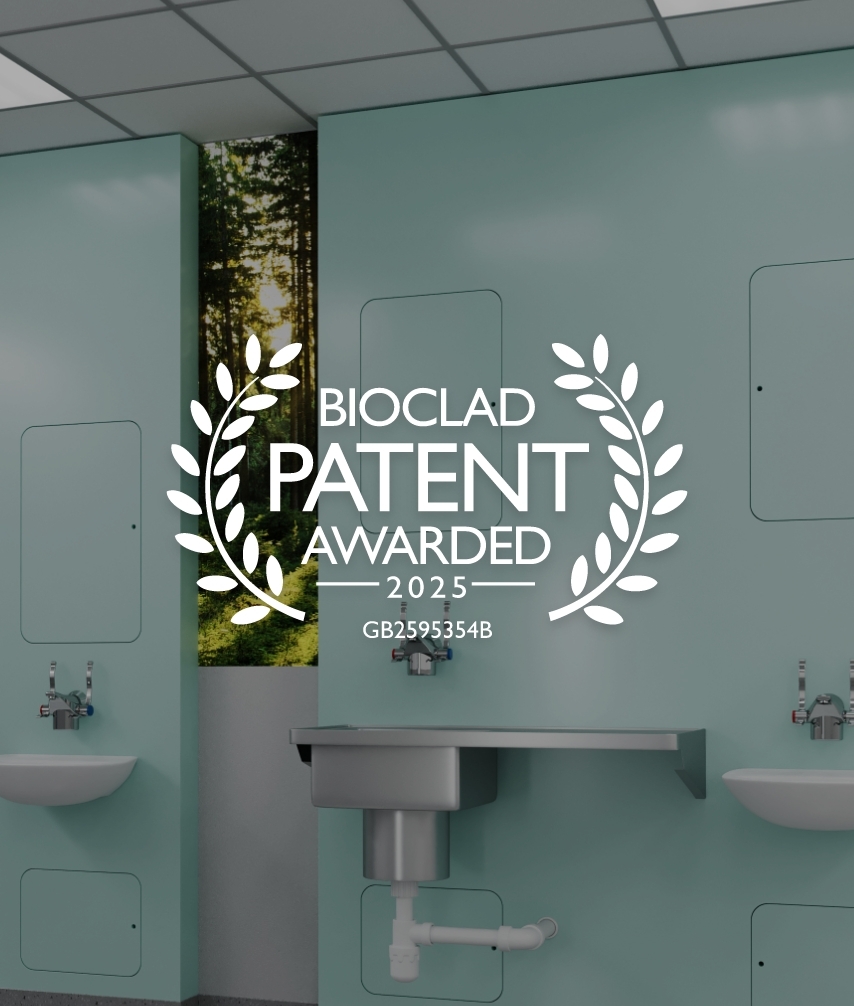Sustainability
PVC hygienic wall cladding is not the first thing that springs to mind when considering sustainability. But PVC occupies a place within construction with which no other substance can compete. When it comes to versatility and minimal environmental impact, PVC can be the most sustainable and environmentally friendly product to choose. A recent study by the Federation of Construction Materials, found that there is aminimal environment load for PVC and lower Co2 emissions compared to alternative materials such as metal or glass.
The Head of Sustainable Development for London 2012 Olympics reversed an earlier decision not to use PVC as PVC was found to be the most sustainable material for many uses. The Olympic Delivery Authority went onto chose PVC for numerous different venues for the London Olympics.
“As we have done in the past with materials such as timber and concrete, we want to use the opportunity of hosting the London 2012 Games to work with industry to set new standards. In this case this may help move the industry towards more sustainable manufacture, use and disposal of PVC fabrics”. – Dan Epstein Head of Sustainable Development ODA.
The ODA concluded that the functional properties of PVC make it the most appropriate material in many circumstances. Stating that “…there is no better alternative product and therefore the longevity of the PVC should be recognised”
(Learning Legacy – Implementation of the PVC Policy 2012)
The environmental and social impact across the whole life cycle played an important role in the ODA’s decision.
PVC products are inert and once manufacturing is complete they don’t generate greenhouse gases during their lifetime.
PVC Products contribute significantly to energy efficiency through low thermal conductivity. PVC window and door profiles for example demonstrate superb heat insulation efficiency.
Plastics are often highly durable and will not rust or corrode. Maintenance and renewal work going on all around the county today on aging infrastructure such as water pipes would be unnecessary had the Victorians had access to plastics.
It’s cost effective, PVC products are amongst the lowest cost materials for a given performance criteria and have made many products far more affordable to people around the world.
PVC is a safe material that is recognised as a socially valuable resource, meeting all international standards for health & safety.
Highly fire resistant, PVC is self-extinguishing and difficult to ignite due to its chlorine content.
Antimicrobial cladding is heavy metal free and 100% recyclable. Any remaining panels or off-cuts can be recycled in the traditional manner.
Finally, antimicrobial cladding is set apart by encouraging the increased lifecycle of the product itself through the provision of a lifetime warranty.
BioClad is ISO 14001 accredited, adhering to the international standards within an established environmental management system.
BioClad is also a member of The Supply Chain Sustainability School. Founded by Skanska together with partners Kier, Lend Lease, Morgan Sindall, Sir Robert McAlpine, Willmott Dixon and Aggregate Industries, this is a voluntary initiative to increase sustainable, ethical & environmentally friendly practices within the construction sector. Members are independently assessed and have an action plan put together to ensure they meet the Sustainability School’s code of conduct.
The industry as a whole is continually pushing itself for improvements. In the year 2000, the UK Environmental Agency investigated whether PVC could have a place in a sustainable society, it concluded yes but changes would need to be made. A set of guidelines, initiatives and target were set out in what become known as Vinyl 2010. This went on to encompass 27 EU countries, trade unions, consumer organisations and industry representatives. Having met these targets as an industry, VinylPlus has been outlined to build on this success and make further improvements to sustainability.

As we continue to make improvements in the coming year, we will be updating our website and sharing our improvement case studies to aid others in minimising environmental impact. We welcome any suggestions as to ways our customers feel we could we could improve.
Order Free Samples
Order Free Samples

We are thrilled to announce that as of 2nd April 2025, Bioclad has been officially granted a patent for our “Integrated Plumbing System Apparatus and Method of Manufacture.”
Read More